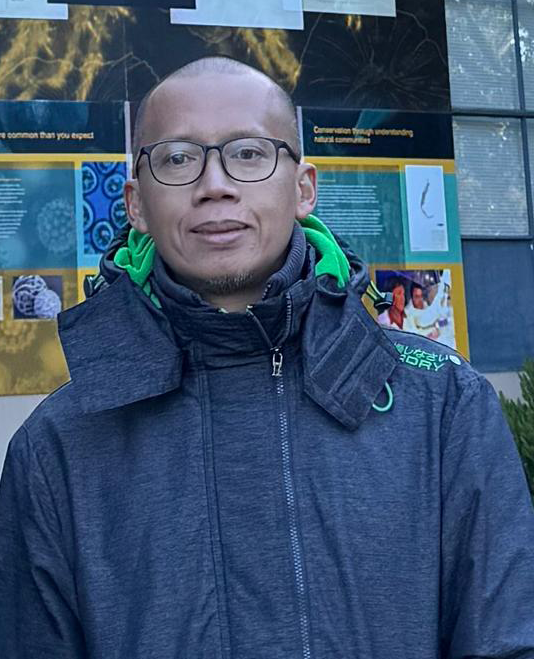JHP Journal Editor’s Note
Cecep Mustafa
1. Indonesia’s Quiet Revolution
Indonesia is witnessing a quiet revolution unfolding not in parliament halls or boardrooms, but in the palms of its people. Financial Technology—Fintech—has emerged as more than a tool of convenience; it is a moral and economic awakening. It redefines who gets to participate in prosperity. In a nation where millions have long been excluded from formal banking, Fintech is turning smartphones into instruments of inclusion—a digital lifeline for those once deemed invisible by the system.
2. Indonesia’s Unseen Engine
Indonesia’s Micro, Small, and Medium Enterprises (MSMEs) are not merely an economic category—they are the living heart of the nation’s economy. Accounting for 99.99% of all enterprises and employing nearly 97% of the workforce, they generate over 60% of the country’s GDP. Yet, these entrepreneurs—the warung owners, farmers, and small manufacturers—have long operated at the margins of formal finance.
Their exclusion is not born of weakness but of systemic rigidity: the absence of collateral, complex bureaucracy, and limited financial literacy. The issue is not that MSMEs fail the system—it is that the system has failed to evolve for them.
3. Indonesia’s Great Divide: The Failure of the Old Guard
For decades, traditional banks, constrained by regulation and risk aversion, have struggled to serve this vital majority. The result is a financing gap nearing Rp 1,000 trillion, a chasm separating potential from realization.
To be labeled “unbankable” in Indonesia is to be told that innovation, effort, and credibility are not enough without collateral. It is a bureaucratic verdict against imagination itself. When formal systems cannot adapt, technology must intervene—and it has.
4. Indonesia’s New Dawn: The Rise of Peer-to-Peer Power
Fintech, and particularly Peer-to-Peer (P2P) lending, is now filling that void with a different logic. It bypasses the marble facades of banking institutions, creating digital bridges between those with funds and those in need. Under OJK Regulation No. 77/POJK.01/2016, P2P lending connects lenders and borrowers directly through transparent online platforms—democratizing access to capital at unprecedented speed.
Over 160 registered platforms have disbursed more than Rp 95 trillion in loans, much of it to MSMEs. Platforms like Modalku, Investree, and Amartha embody diverse models of inclusion—from SME financing to micro-loans for rural women. Amartha’s gandeng renteng model, built on communal trust, blends local wisdom with digital precision, proving that progress need not erase tradition.
5. Indonesia’s Balancing Act: Promise and Prudence
Yet innovation without oversight can quickly turn brittle. Fintech’s speed and reach introduce new forms of risk—regulatory gaps, cybersecurity concerns, and uneven consumer literacy. The OJK rightly cautions that regulation must evolve in tandem with innovation.
But regulation alone is not enough. A third of Indonesians still do not use formal financial services. Without education and digital literacy, access can morph into exposure. Inclusion, to be genuine, must empower users to participate safely and knowingly. Technology may open doors; only literacy ensures they lead somewhere worthwhile.
6. Indonesia’s Economic Tapestry: Weaving Inclusion and Integrity
The rise of Fintech is not the end of Indonesia’s financial story—it is the first thread of a larger weave. Beyond credit, digital ecosystems now offer payment solutions, bookkeeping platforms, and data-driven tools that can professionalize and scale MSMEs. The vision is not simply to lend money, but to build capacity—to make small businesses not just bankable, but digital, competitive, and resilient.
For policymakers and the judiciary, the challenge is to design frameworks that encourage innovation without abandoning accountability. Regulation must be seen not as resistance to progress, but as the architecture that allows trust to grow.
7. Indonesia’s Next Chapter
Indonesia stands at a rare crossroads: technology has made inclusion possible, but only governance can make it sustainable. The Fintech revolution must now mature into a Fintrust evolution—one grounded in fairness, transparency, and the rule of law.
If guided with care, this digital transformation could do more than bridge a financing gap. It could redefine the moral contract of the economy itself—where value is measured not just in capital, but in connection.
Because in the end, Indonesia’s financial future will not be written by algorithms alone, but by the collective choice to make technology serve humanity.

Untuk Mendapatkan Berita Terbaru Suara BSDK, Follow Channel WhatsApp: SUARABSDKMARI



